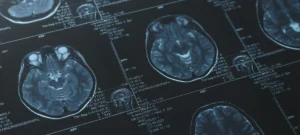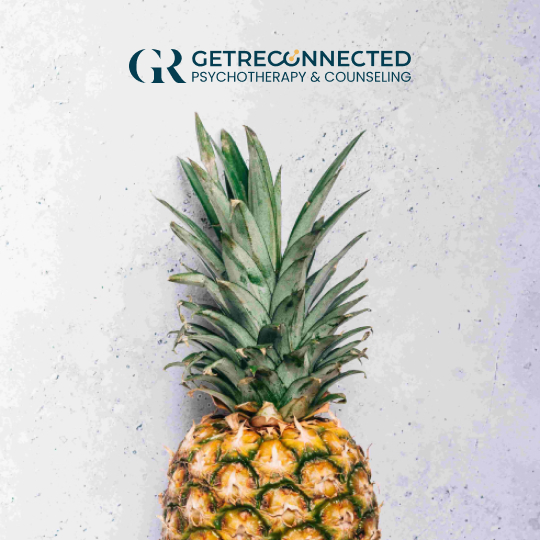Introduction
We all know the feeling of burnout. That overwhelming exhaustion that comes from pushing ourselves too hard for too long. We might try to push through it, but eventually we all need to take a break. Turns out, our brains need a break too.

What is burnout?
The term “burnout” originates from the psychologist Herbert Freudenberger. He used it to describe the physical and mental collapse of people who had been working too hard for too long. While it was originally used to describe occupational hazards, burnout has since become a catchall term for any type of exhaustion, whether physical, mental or emotional. Burnout is more than just feeling tired. It’s a state of chronic stress that leads to physical and mental collapse.
Did you know that burnout doesn’t just affect your mental health, but it physically changes your brain too?
In this blog post, we’ll explore some of the little-known physical changes that burnout can make to your brain. From difficulty concentrating to memory problems, burnout can have a significant impact on how well your brain functions.
So, if you’re feeling burnt out, it’s important to take care of yourself and seek help from a professional if needed.
How Burnout Affects the Brain
Have you ever noticed how it’s harder to turn off negative thoughts when you’re stressed, started the day off wrong or in a bad mood? But what about ‘the accumulation of hundreds or thousands of tiny disappointments, each one hardly noticeable on its own’ as Richard Gunderman, a professor of radiology and philosophy at Indiana University would describe burnout’s gnawing effect? It goes brain deep and actually tears at the connection between our amygdala and the medial prefrontal cortex (mPC) which is a structure in the brain involved in executive function (i.e., decision making, logical side of the brain).
The role of the amygdala and the hippocampus in the stress response

Those who have experienced burnout have a relatively enlarged amygdala compared to those who haven’t. They had weaker connections between their amygdala and cingulate cortex, an area of the brain associated with emotional distress. Burnout can not only rewire the brain but also contribute to causing more stress as well as higher incidents of attentional and memory deficits.
Normally, cortisol helps the body respond to threats, activating various systems such as the cardiovascular and immune systems. Once the stressor passes, cortisol levels return to normal. In the case of a brain on burnout, the body struggles to reset, leading to chronic health issues. Over time, consistently high cortisol levels cause the body to reduce its production, resulting in hypocortisolism, a condition where cortisol levels are abnormally low, similar to what is seen in severe stress and trauma. This dysregulation creates a compound effect of poor brain health and a higher probability for other health issues.
Another key area affected by burnout is the hippocampus, a region critical for memory and learning. People experiencing burnout often have a smaller hippocampus, which can lead to memory problems and difficulty retaining information. This is especially concerning because the hippocampus is also one of the first areas of the brain to be affected by Alzheimer’s, suggesting that burnout could contribute to a higher risk of cognitive decline later in life.
The impact of chronic stress on brain structure and function
Studies show that stress impacts men’s and women’s brains differently. In women, stress tends to keep the amygdala— the part of the brain that handles emotions—more active for longer periods. This can lead to the amygdala getting bigger and certain areas of the brain, like the prefrontal cortex (PFC) and superior temporal gyrus (STG), becoming thinner. These changes can make women more likely to develop stress-related issues, such as depression and anxiety. For men, stress can cause different changes, like a decrease in the size of the caudate, a part of the brain that helps with movement and learning, due to the effects of glutamate, a chemical that plays a role in the body’s stress response. (Savic et al. 2018).
These structural alterations reflect how chronic stress from burnout can lead to long-term brain circuit changes, predisposing individuals to mental health issues. Despite decreased stress levels, these brain changes may persist, which suggests a lasting vulnerability to mental health conditions such as depression and anxiety.
Impact of Burnout on Brain Health
Short and long-term effects of overall brain health
In the short term, burnout can impair attention, memory, and decision-making. Over time, it can lead to lasting changes in brain structure and increase the risk of developing conditions like Alzheimer’s disease and other forms of dementia.
Burnout also alters the prefrontal cortex, the part of the brain responsible for decision-making, self-control, and emotional regulation. Studies have found that burnout leads to a thinning of gray matter and cortical thickness in this region, making it harder to manage stress, plan ahead, or make decisions. This can leave people feeling stuck and overwhelmed by tasks they would normally handle with ease.
Cognitive Impairment and Decreased Brain plasticity

High levels of stress hormones, such as cortisol and catecholamines, further complicate the picture. These hormones are helpful in short bursts, preparing the body to respond to immediate challenges. With burnout they stay elevated, causing damage to neurons, disrupting neurotransmitter activity, and increasing inflammation in the brain. This inflammation can interfere with mood and cognitive function and has been linked to depression and other neurological disorders.
Fortunately, the brain can recover with the right help and support. Studies show that cognitive behavioral therapy (CBT) can help reverse some of the damage caused by burnout, shrinking the amygdala (the brain’s alarm system) and restoring prefrontal cortex function. Activities like creating art, cooking, spending time in nature, and practicing yoga or other forms of physical relaxation can also promote brain healing and ensure the brain stays flexible to combat stress effects.
Burnout is more than just feeling exhausted or overwhelmed—it’s a breakdown of essential brain systems. Recognizing the seriousness of burnout and taking steps to address it can not only improve how you feel in the short term but also protect your brain from long-term harm.
Strategies for Managing Burnout and Protecting Brain Health
The Importance of Stress Management Techniques
Stress is inevitable, but how we manage it makes all the difference. Left unchecked, stress can erode our mental health and cognitive function over time. Some effective stress management techniques include deep breathing, mindfulness, and progressive muscle relaxation. These approaches work by calming the nervous system, helping the brain shift from a “fight-or-flight” mode to a more relaxed state where it can heal and recover. Even taking short and frequent breaks throughout the day can help reduce brain overload, helping it to stay sharp.
The role of self-care in preventing burnout

A 2021 study from the Journal of Personality and Social Psychology found that adults need at least two hours of free time per day for optimal mental health. Interestingly, they also discovered that any more than five hours of free time can lead to decreased life satisfaction. This sweet spot of 2–5 hours of daily downtime allows us to recharge, without slipping into feelings of boredom or aimlessness.
Self-care is personal, and it can include anything from reading, connecting with friends, or simply taking a quiet walk. What’s important is that it’s time spent doing something we enjoy or that allows us to reset mentally. This way, we’re less likely to feel trapped by responsibilities or stress.
Benefits of Exercise on Brain Health

The physical benefits of exercise are well known, but it is also a powerful tool for protecting brain health. Regular physical activity increases blood flow to the brain, stimulates the release of feel-good hormones, and promotes the growth of new neural connections. These changes enhance cognitive function, memory, and even emotional resilience.
Incorporating healthy habits like a balanced diet, good sleep hygiene, and staying hydrated are equally important. Foods rich in omega-3s, antioxidants, and vitamins help reduce inflammation and support brain function, while proper sleep ensures our brain has time to recover and reset. Together, these habits help maintain mental clarity, reduce the effects of stress, and protect us from the cognitive decline of burnout.
Key Takeaways
The long-term consequences of our burnout culture can leave lasting wounds on our current brain health and in the future as well. Our brain on burnout isn’t just about feeling tired or overworked; it’s a warning sign from your body and mind that something needs to change. Chronic stress can seriously impact your brain health, affecting everything from your ability to concentrate to how you process emotions and memories. Over time, if ignored, it can lead to long-term damage that’s much harder to reverse.
Taking care of your physical and mental well-being isn’t a luxury—it’s essential. Small changes, like setting boundaries, getting enough rest, and making space for what nourishes you, can go a long way in protecting your health and helping you stay grounded for years to come. Don’t wait until burnout takes over; make rest and a habit of self-care a priority now.
It is crucial that we are aware of what burnout looks like before we accidentally enable its effects. Check out our other articles on burnout to get a deeper look at what symptoms to look out for.
At Get Reconnected Psychotherapy Services, we specialize in Burnout Reset and Recovery. Book a free 15-minute consultation to find out how we can help you reset and refocus from burnout. We will identify what is the root cause for the burnout and create tools to help you recover.









